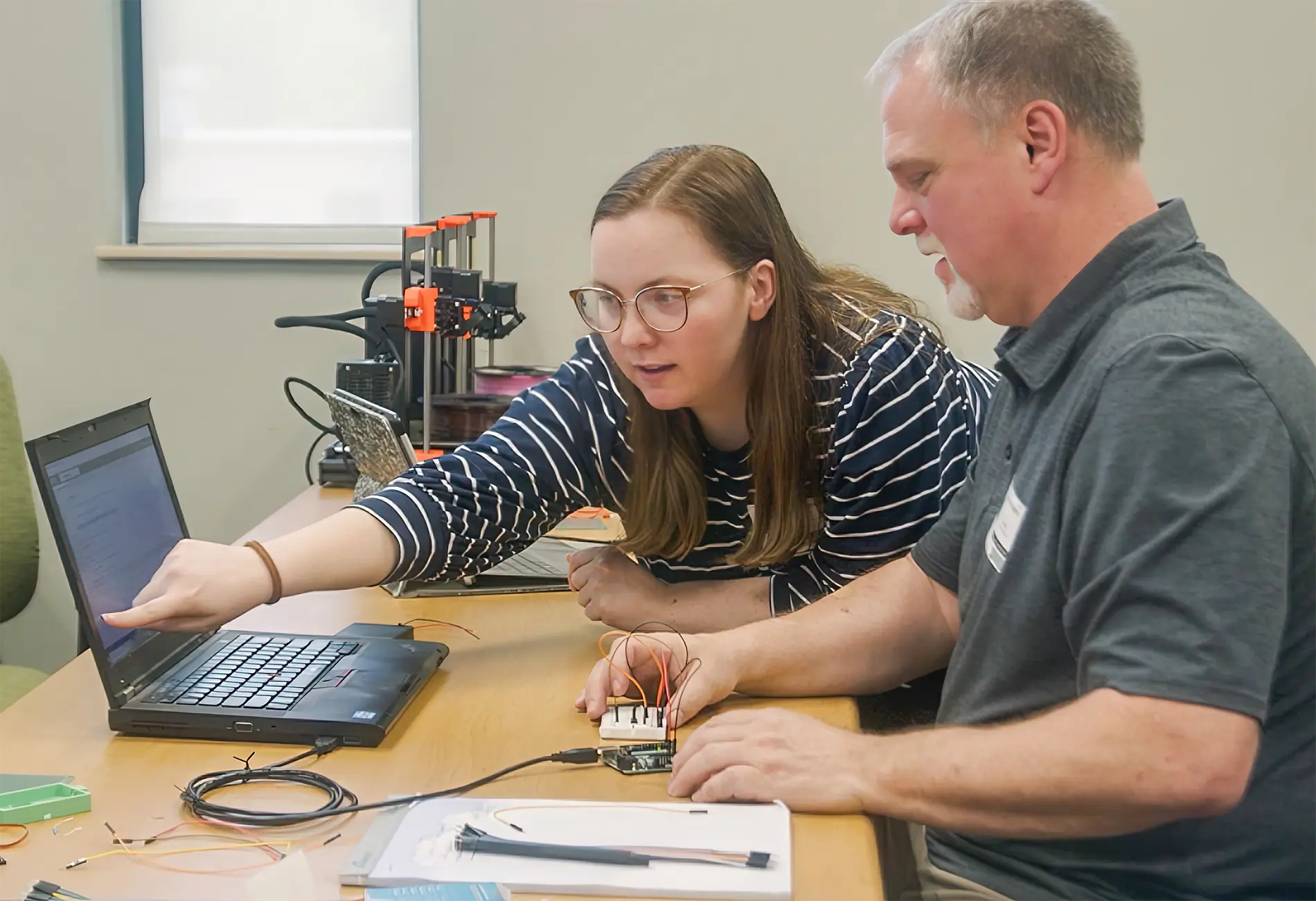While traditional education has been the dominant method of transferring knowledge for the past several decades, more teachers are advocating for immersive environments and experiences. The traditional format is passive learning—the teacher lectures, and the student absorbs. ORAU is encouraging educators to supplement this classic approach of facilitating a classroom with more hands-on opportunities for students.
Throughout the summer, ORAU is hosting in Oak Ridge, Tenn., free professional development courses for teachers. The 2024 program kicked off on Monday, June 3, with a session offering teachers ways to use Arduino [pronounced Ar dwee no] computers to create real-world math and science experiences for their students. Arduino is an open-source electronics platform that enables users to design and build devices that interact with the world. (Think: creating a weather station, building self-driving vehicles or developing smart homes.)
“No matter how good the student’s content learning is, there’s a gap of some kind that people usually need to fill that they’re not being taught,” explained Nathan Kenner, instructor for the Arduino course. Kenner teaches engineering and International Baccalaureate personal and professional skills at West High School in Knoxville, Tenn. IB personal and professional skills are designed to reinforce skills students need in college, the workplace and beyond.
Kenner uses Arduino in his classroom and is passionate about sharing this tool with fellow educators because of the growth and development he’s seen. “Juniors in high school—some students who previously didn’t excel academically—take off when they are given some components and freedom to tinker. I had one student who wouldn’t be considered an over-achiever, but he decided to pursue engineering in college because he fell in love with the concept of solving problems through design.”
In the four-hour Arduino enrichment course, teachers were given a tiny solar panel, 3-D printed parts and components they needed to create a circuit. With simple instructions, they were tasked with building a light-following solar panel. Through trial, error, failure and success, the teachers envisioned how they could use similar systems-thinking in their own classrooms.
Emily McDonald of University High School in Chattanooga, Tenn., teaches 11th and 12th grade math including algebra II, pre-calculus and statistics. She says she would like to use this experiment in her trigonometry unit studying solar intensity and energy usage.
“Whenever it’s hands-on, they’re more apt to remember. There’s something that’s tangible about it. It also makes their learning more concrete,” McDonald said.
As teachers learn new skills in professional development courses like Arduino, they’re able to better connect with their digital-native students. McDonald explained that mistakes feel like “low stakes” if they’re able to try again in the moment to find the solution, unlike a traditional written assignment or test. “When students hit roadblocks, like they don’t get the math problem right, they think they’re not good at math. Whereas, with this learning style, they’re able to celebrate small wins and practice perseverance. They’re okay with, ‘Oh, it doesn’t work. Maybe I have this hooked up in the wrong port. Let me try something and test it out again.’”
Kenner agreed: “The kids can be in control. The kids can experiment. They can iterate or differentiate. They can build up and scaffold back. They constantly cycle back to these foundational skills and put it into practice.”
Whether it’s Arduino or another physical application, ORAU is proud to support teachers in wholistic, critical thinking instruction. To see the full list of in-person and virtual professional development opportunities for teachers this summer, visit Professional Development Programs for K-12 Teachers | ORAU.
